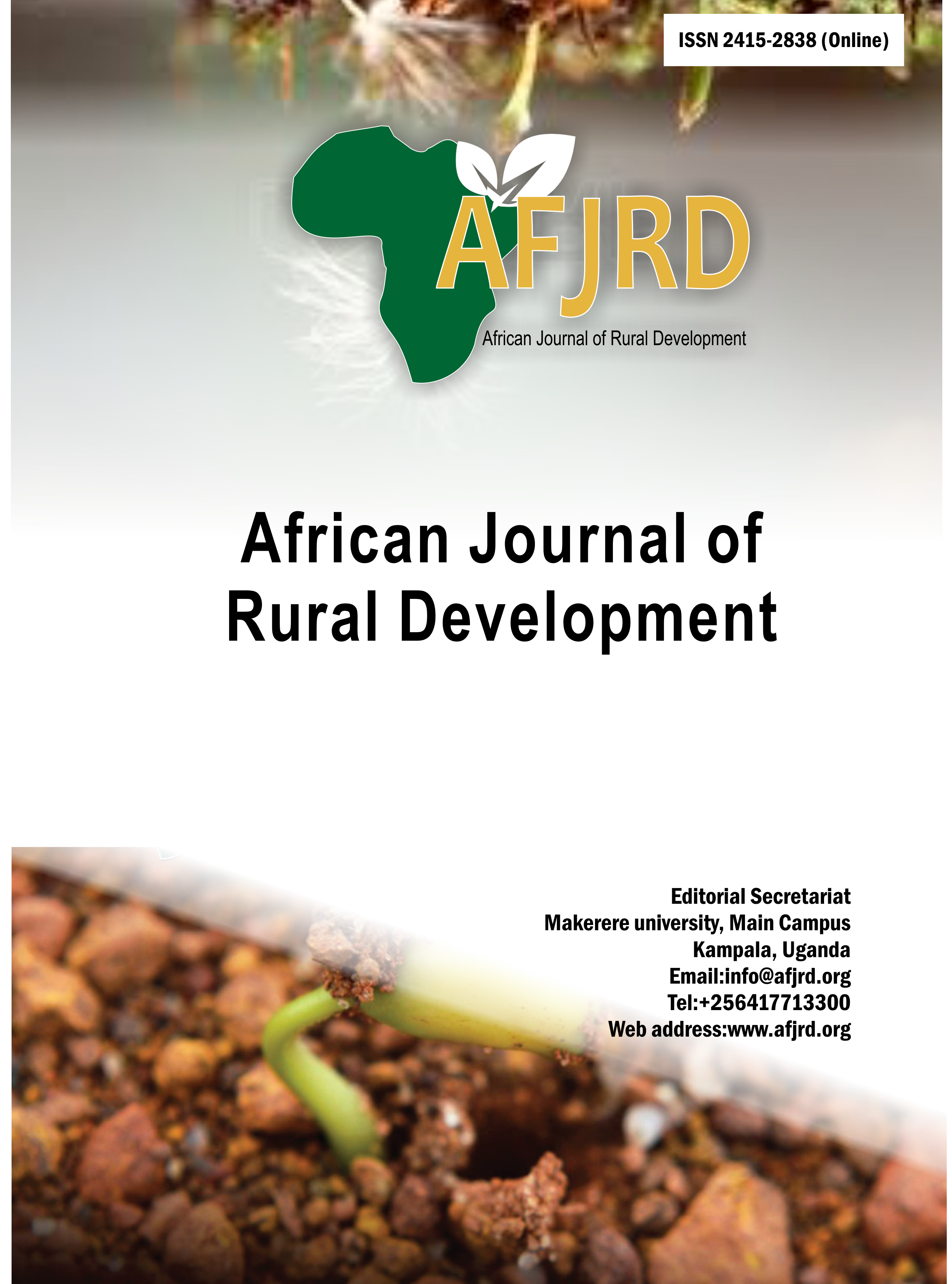Determinants of innovation behaviour among pig farmers in Northern Uganda
Main Article Content
Abstract
Attributable to poor market linkages, Ugandan pig farmers are taken advantage of by middlemen who pay low prices, recline the weight of pigs and default on payments. Farmer innovation can remedy the situation; however, the factors influencing pig farmers’ innovation behaviour are not fully known. Further, extant studies on the subject tend to report findings on innovation behaviour as a composite variable other than its decomposed phases of exploration, experimentation, adaptation and modification of farming practices. This study therefore aimed at examining the influence of socio-economic factors on the
phases of innovation behaviour among pig farmers in Northern Uganda. A cross sectional survey of 239 respondents was carried out and primary data were collected using pretested, semi-structured questionnaires between the month of October and November 2018. Tobit regression was employed for data analysis. The results revealed that personal selling affects all phases of innovation behaviour. In addition, i) exploration of new practices was affected by stock size, educational level and gender; ii) experimentation of new practices also depended on educational level; iii) adaptation of new practices was predicted by
farming experience, extension service, access credit, non-farm employment, distance to town market and pork selling, and lastly iv) modification of existing practices was contingent on farming experience, access to extension service, access to credit, price
negotiation ability, selling pigs to peer farmers and selling pork. Therefore, pig farmers operating in poorly developed value chains should as much as possible do personal selling of their pigs and pig products through informing
Article Details

This work is licensed under a Creative Commons Attribution 4.0 International License.
